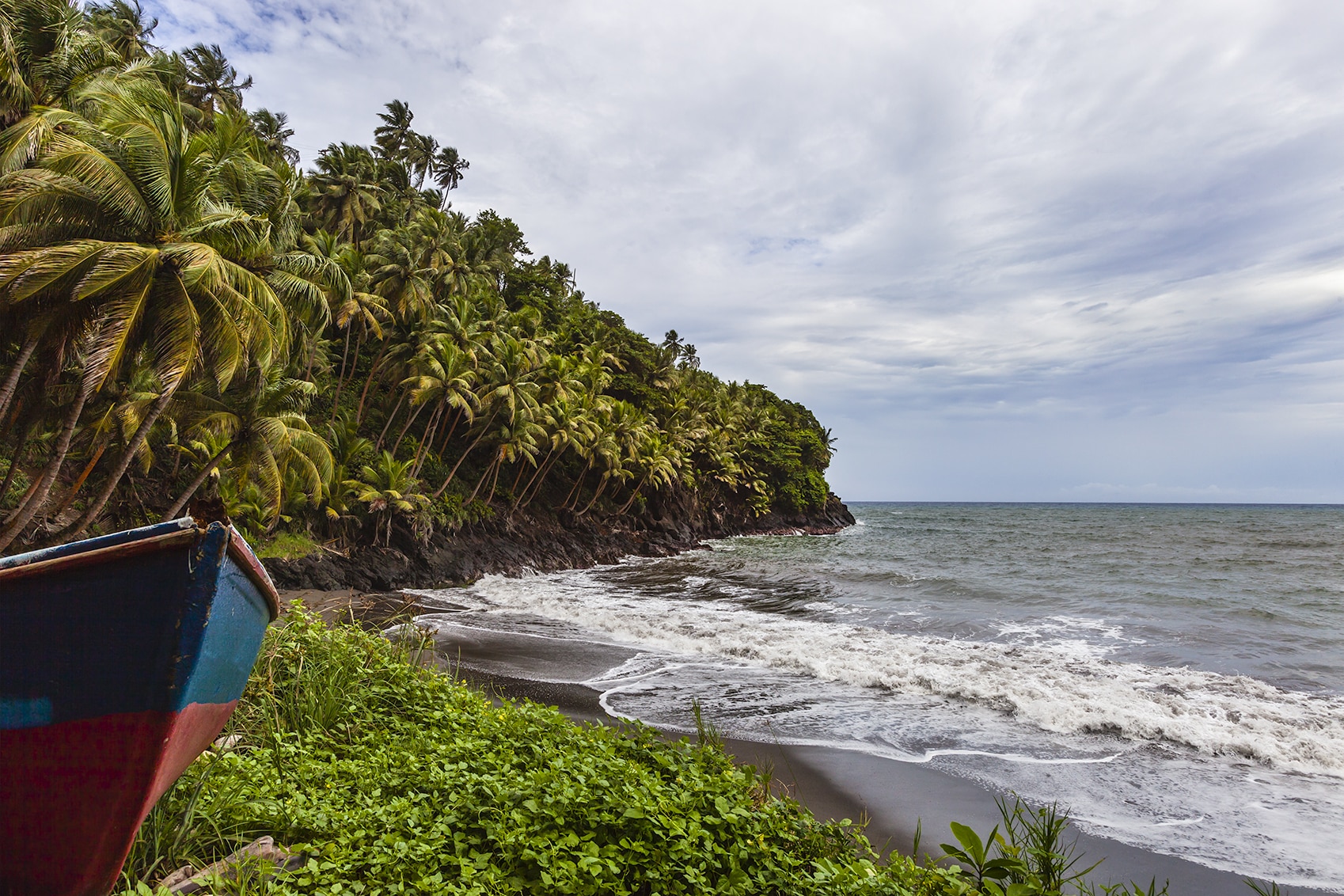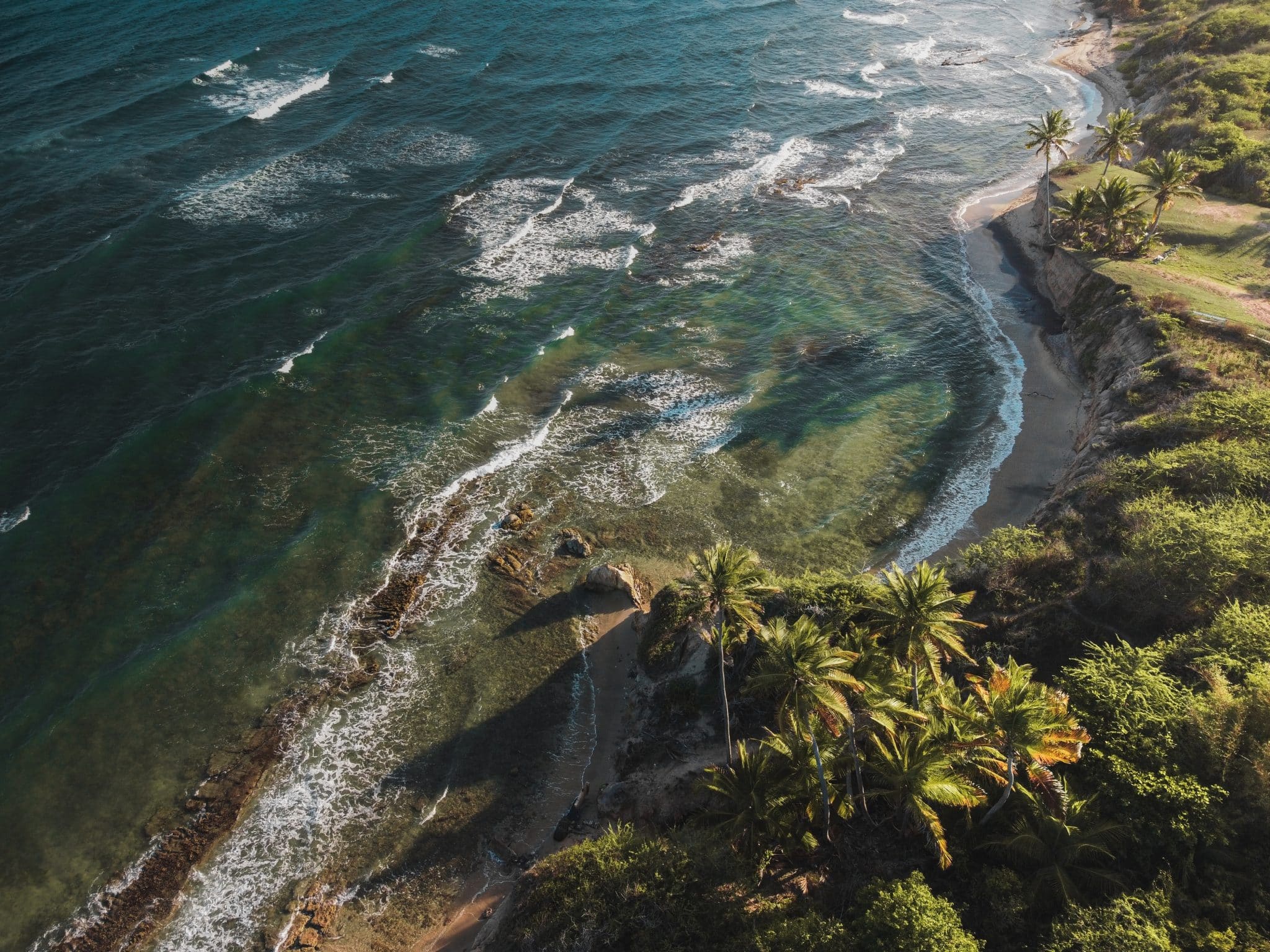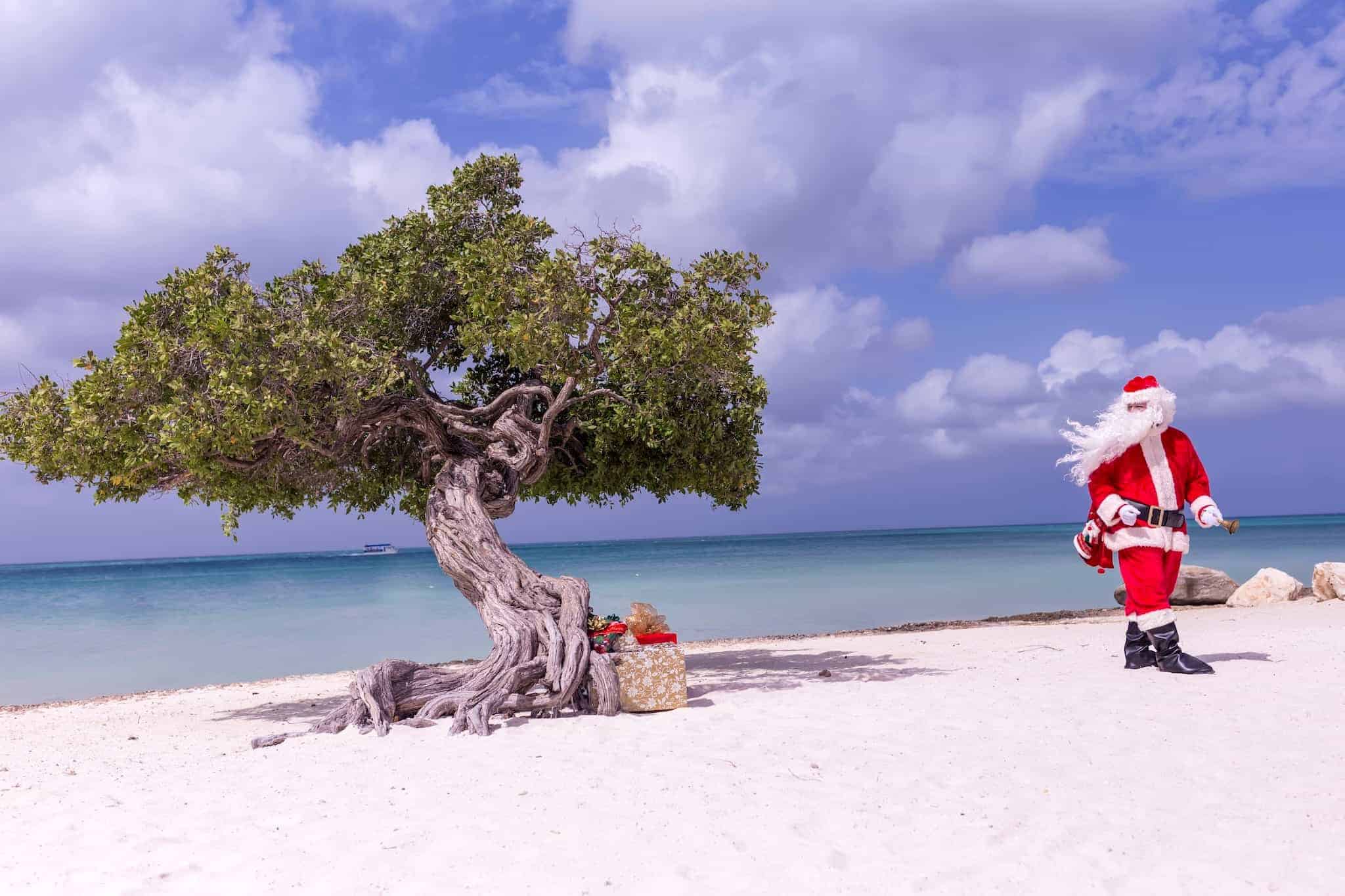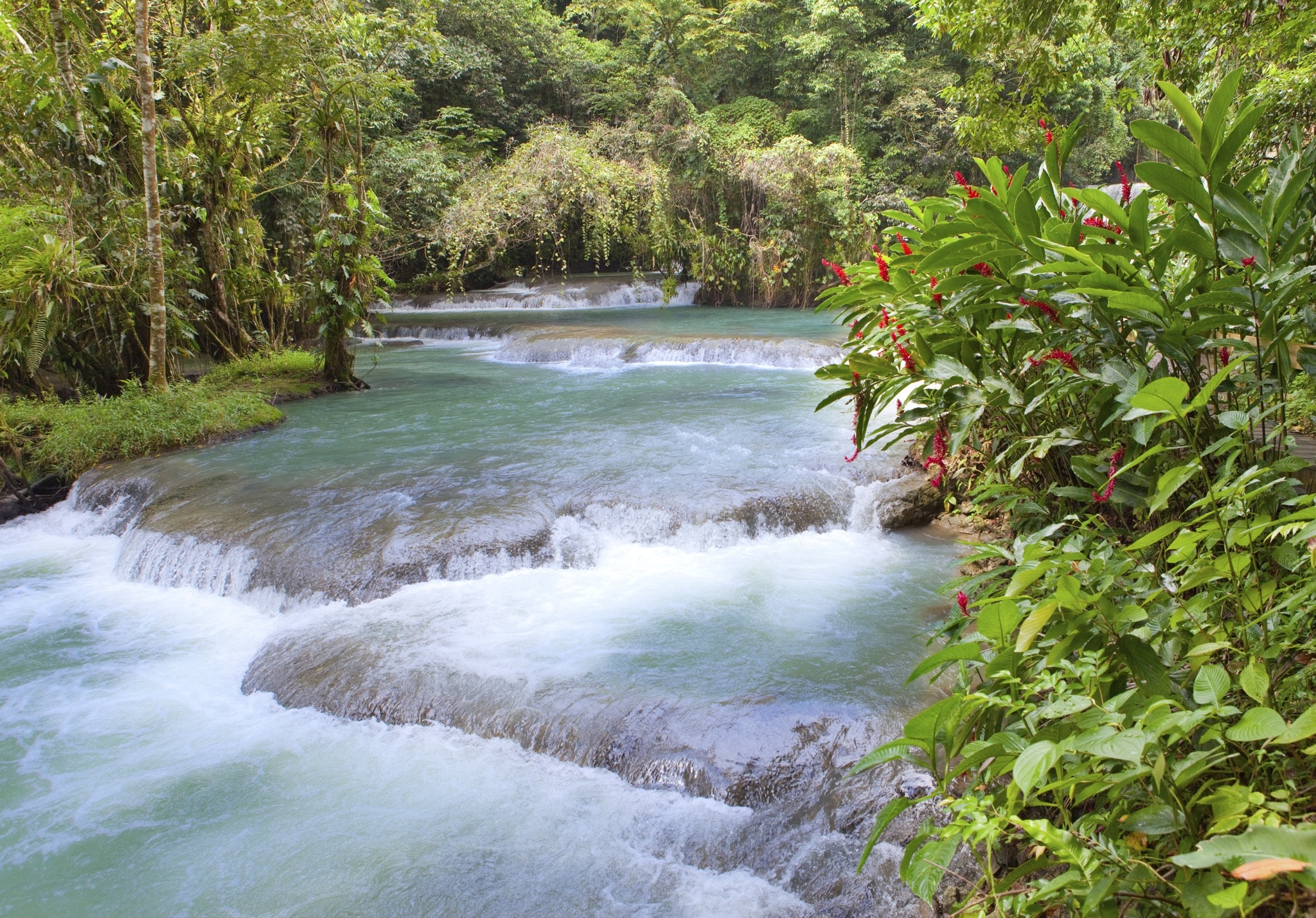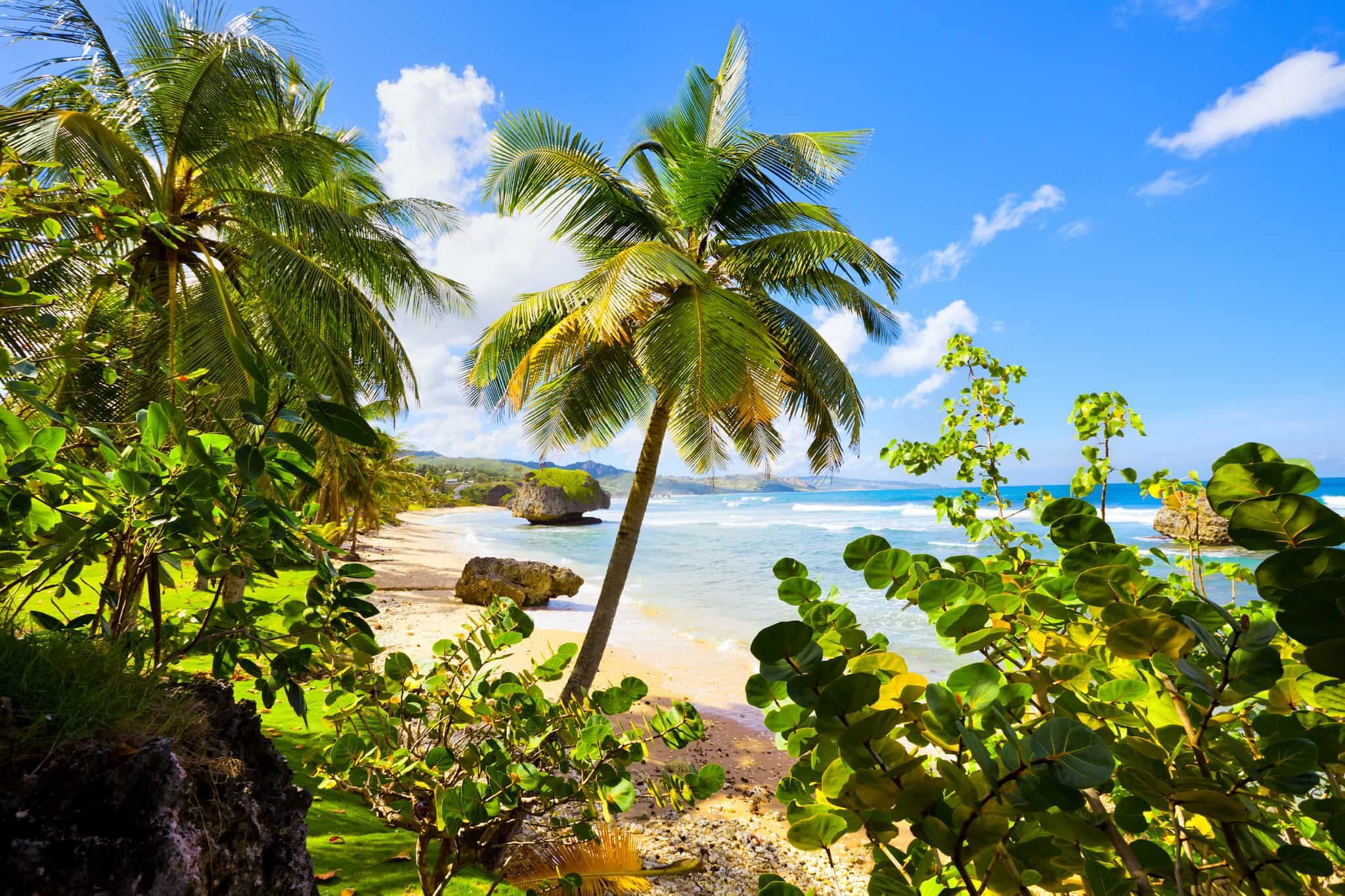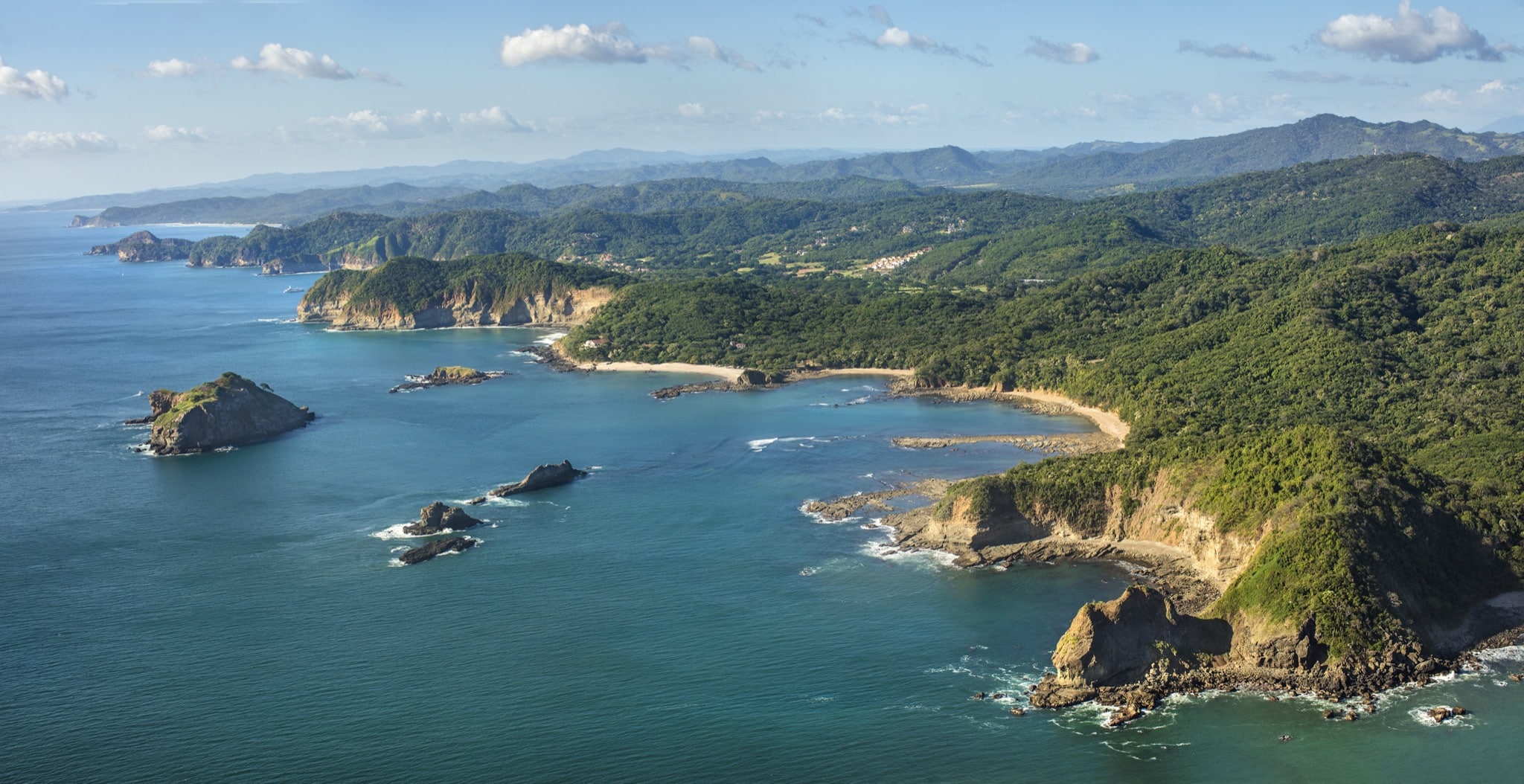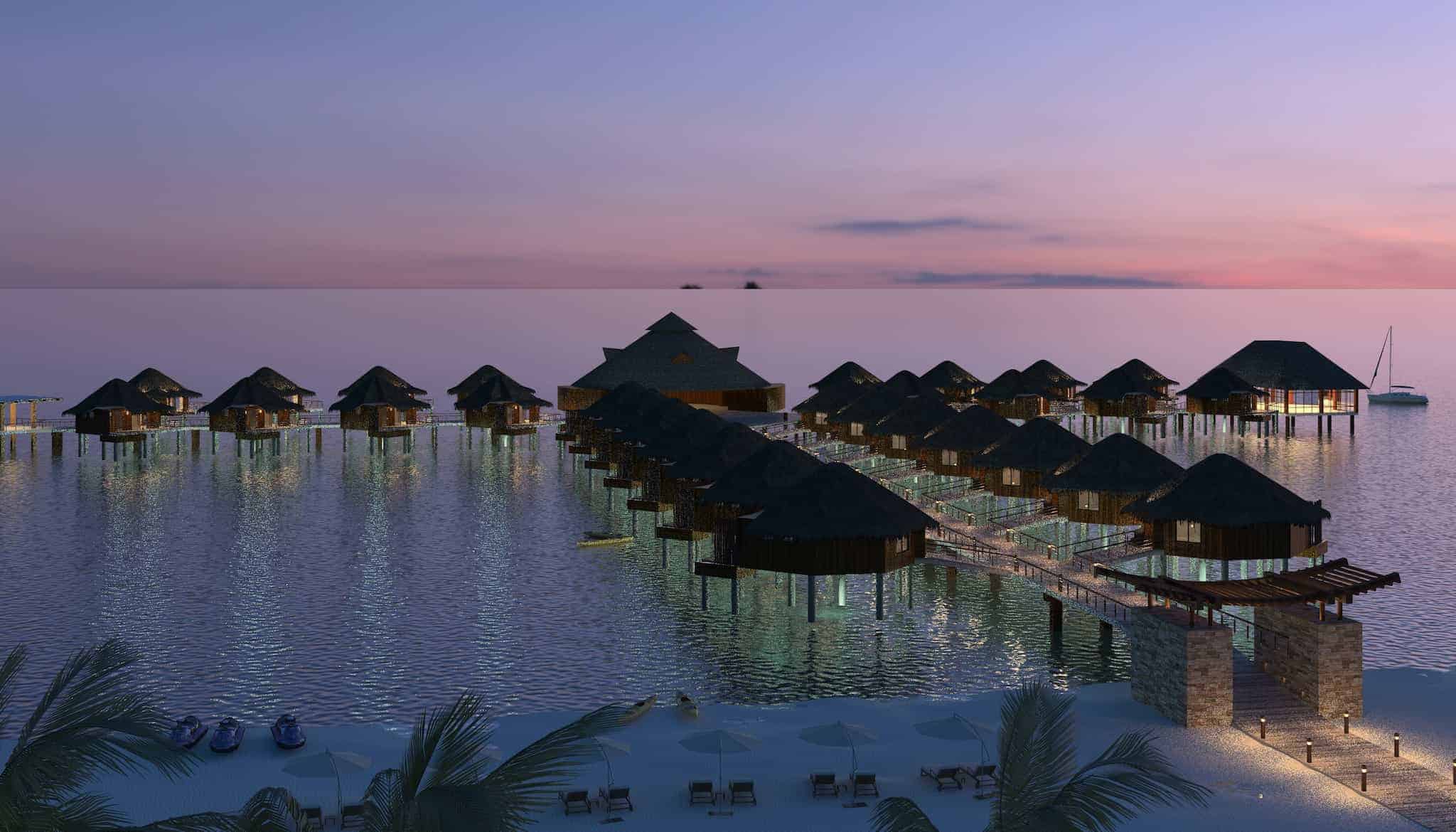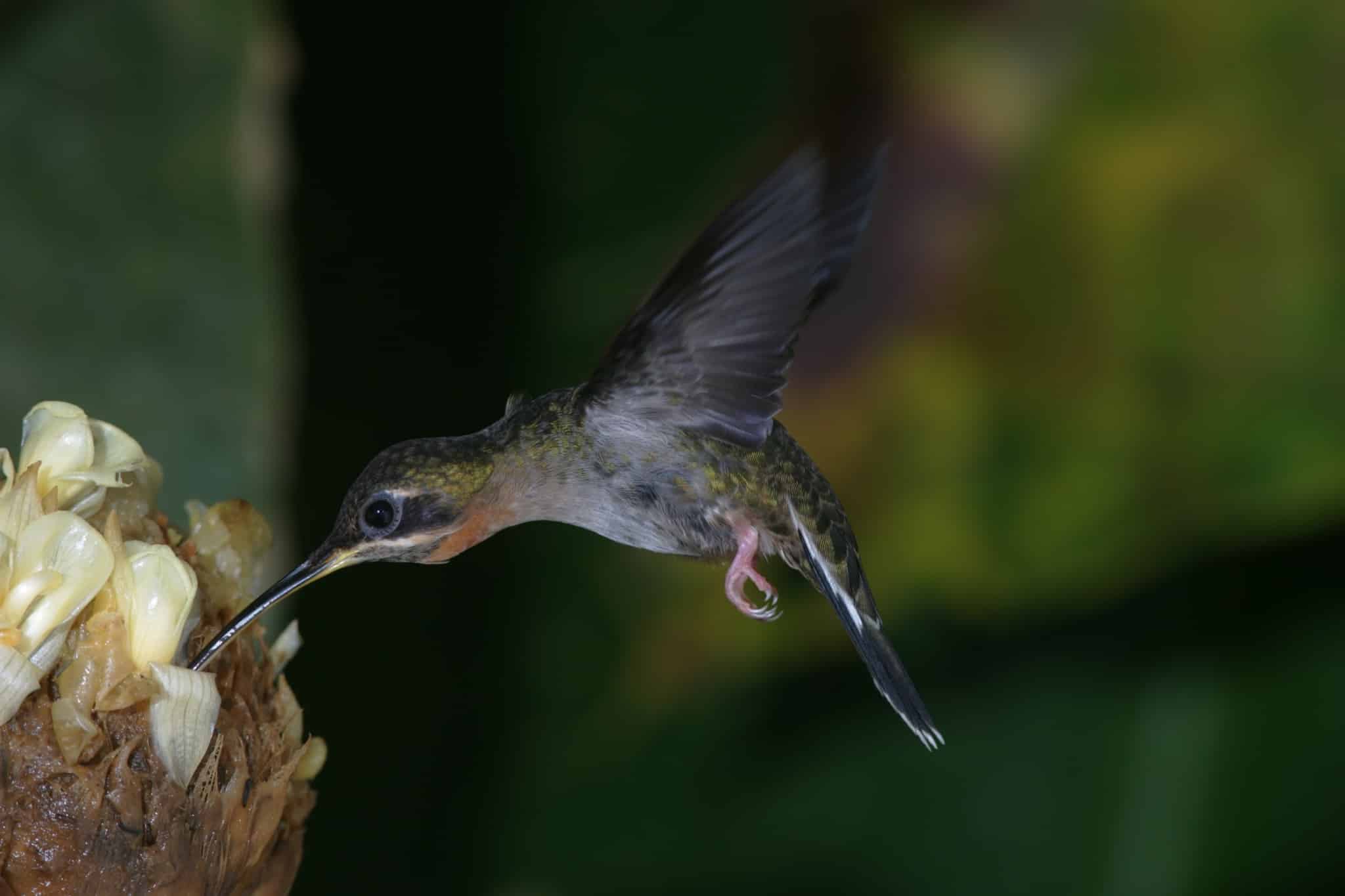They are sexy, silky and mysterious. Some are hidden and hard to find while others are well known and favored by beach lovers. Images of dark, dramatic black sand beaches elicit the idea of exotic locales but many are found on nearby shorelines. As you travel the world make sure you add a couple of these intriguing coasts to your bucket list.
Hana, Maui, Hawaii
The Road to Hana takes in winding and rugged coastlines leading to a collection of black sand coves and beaches. This stretch of highway from Paia unveils sea stacks, blowholes, lava caves, waterfalls, pineapple fields, and bamboo jungles. Along the way stops at sacred sites filled with ancient legends and mythology give insights into Hawaiian culture. Wailua Falls, a must-stop and certainly the most photographed waterfall on the journey, Ke’Anae Valley offers an easy hike or a day of adventure. Seven Sacred Pools, the most well-known is clearly accessible. While the journey is only about 45 miles long, with over 600 hairpin turns and 50-plus one-lane bridges, the trip is a full-day excursion, if not longer. You’ll want to allow time to linger at the bottom of waterfalls and explore black sand coves.
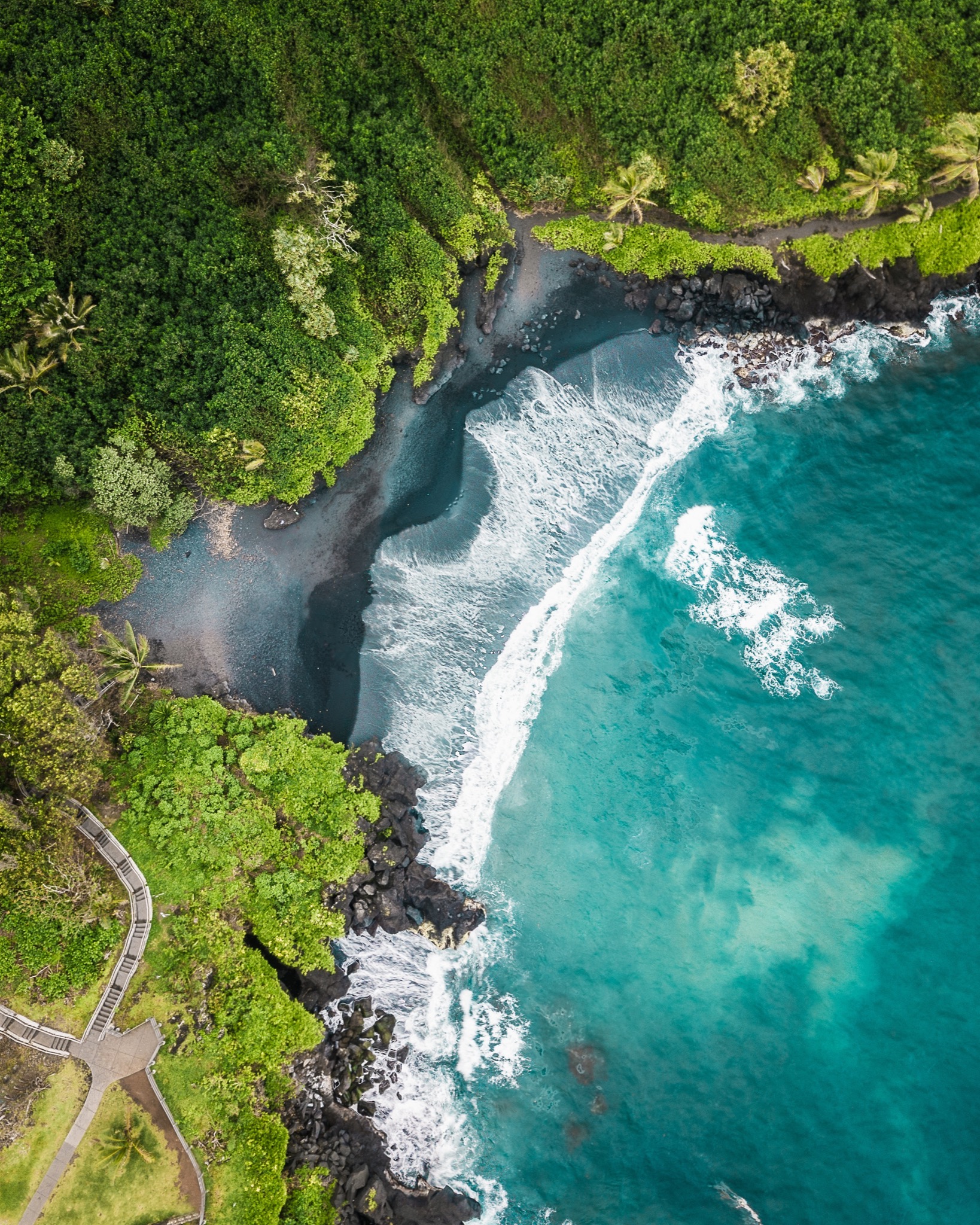
Grande Anse, Trois-Rivieres, Guadeloupe
Off the beaten path, this unspoiled stretch of dark fine silky sand is lined with coconut palms and presents itself as a wild natural beauty. While popular with surfers and bodyboarders, the spot is best for relaxing and watching the rolling waves hit the shoreline, as swimming is not recommended. Between March and October leatherback and green turtles find their way to the soft volcanic sand and lay their eggs year after year, all strictly protected by local government agencies and international conservation organizations. Located on the southern end of Basse-Terre near the town of Trois-Rivieres the beach offers a direct view of Les Saintes and the island of Dominica.
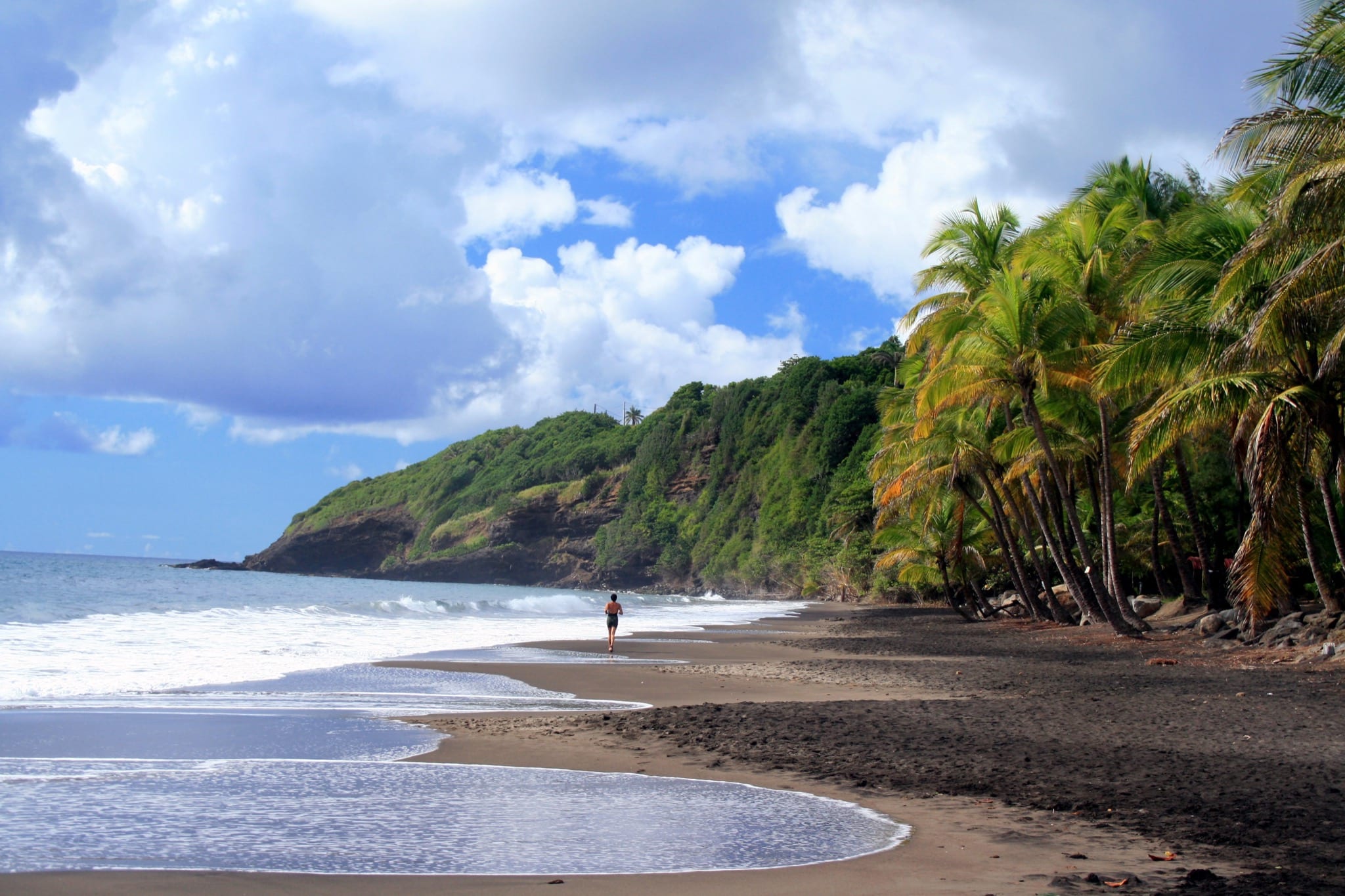
Hiva Oa, Tahiti
French Polynesia is known for its palm-lined strips of sand ranging from white to pink and black. The islands are volcanic by nature unveiling craggy and mountainous topside fringed with stunning coves and bays. Known as the Garden of the Marquesas, Hiva Oa, the largest island in the southern Marquesas Archipelago is lined with black sand beaches where sharp ridges and peaks plunge into the Pacific. Lush valleys, steep cliffs, and dense vegetation cover the land. This wild and rugged landscape is scattered with archeological sites and ruins that include tiki and paepae offering a mystical and untamed feeling. Remote and untouched by crowds, the island remains authentic and serene.
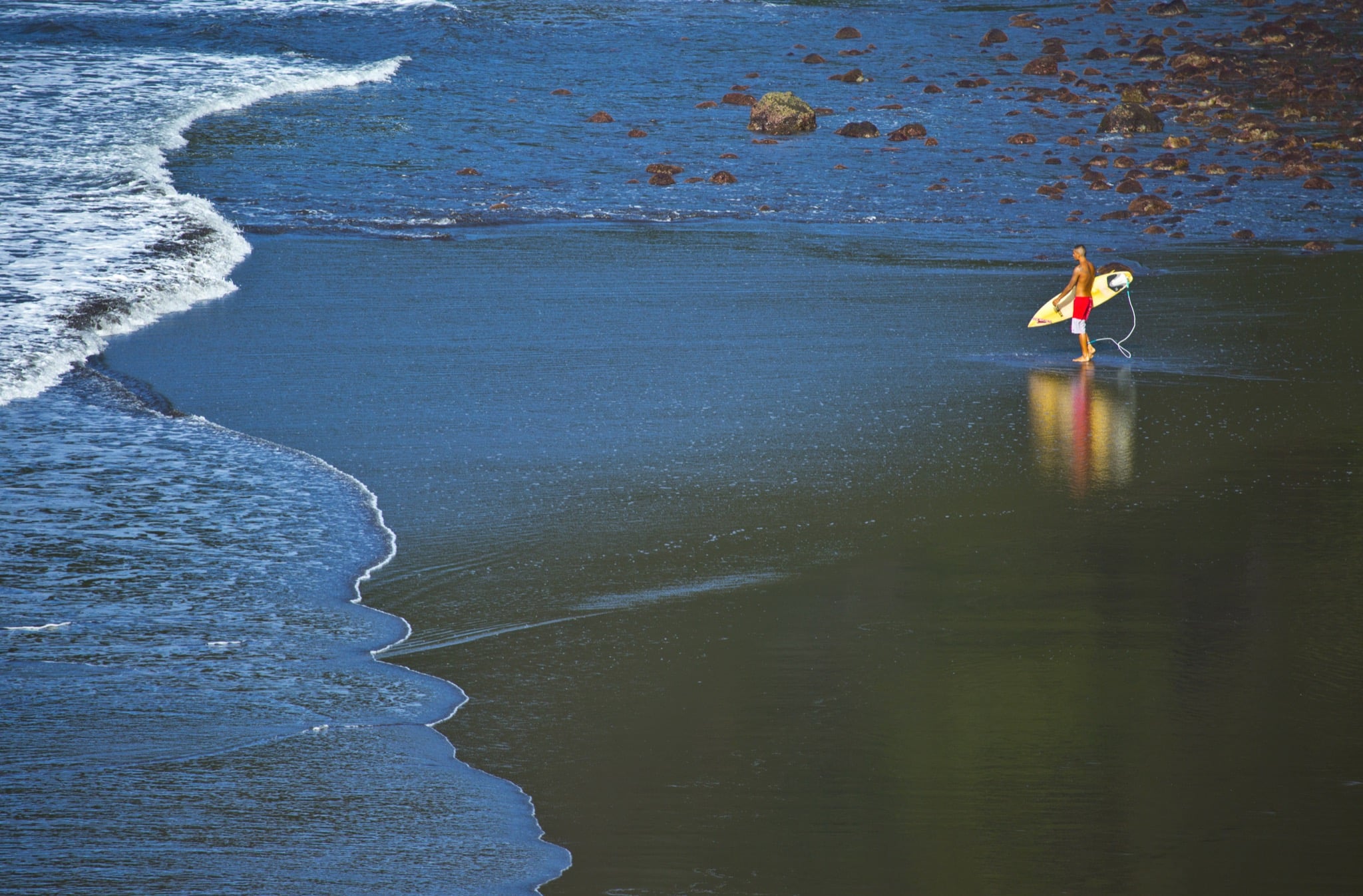
Playa Negra, Vieques, Puerto Rico
Vieques is an island of beaches, bays, and coves along with mangrove forests, salt flats, and bioluminescent waters. Visitors spend time hiking trails, kayaking, and paddle boarding. Play Negra is one of a few black sand beaches on the island and may be the most beautiful. Backed by rocks and cliffs covered in green, gray driftwood lands on the glistening charcoal shore that contrasts with the white foamy waves. This is a place where you can sit back and dig your toes in the black silky sands, a mixture of limestone and layers of sediment created as tectonic plates lift. Beach lovers are intrigued by a walk along the glimmering shores of contrasting shades of golden honey and rich ebony. Ideal for gazing but swimming can be dangerous.
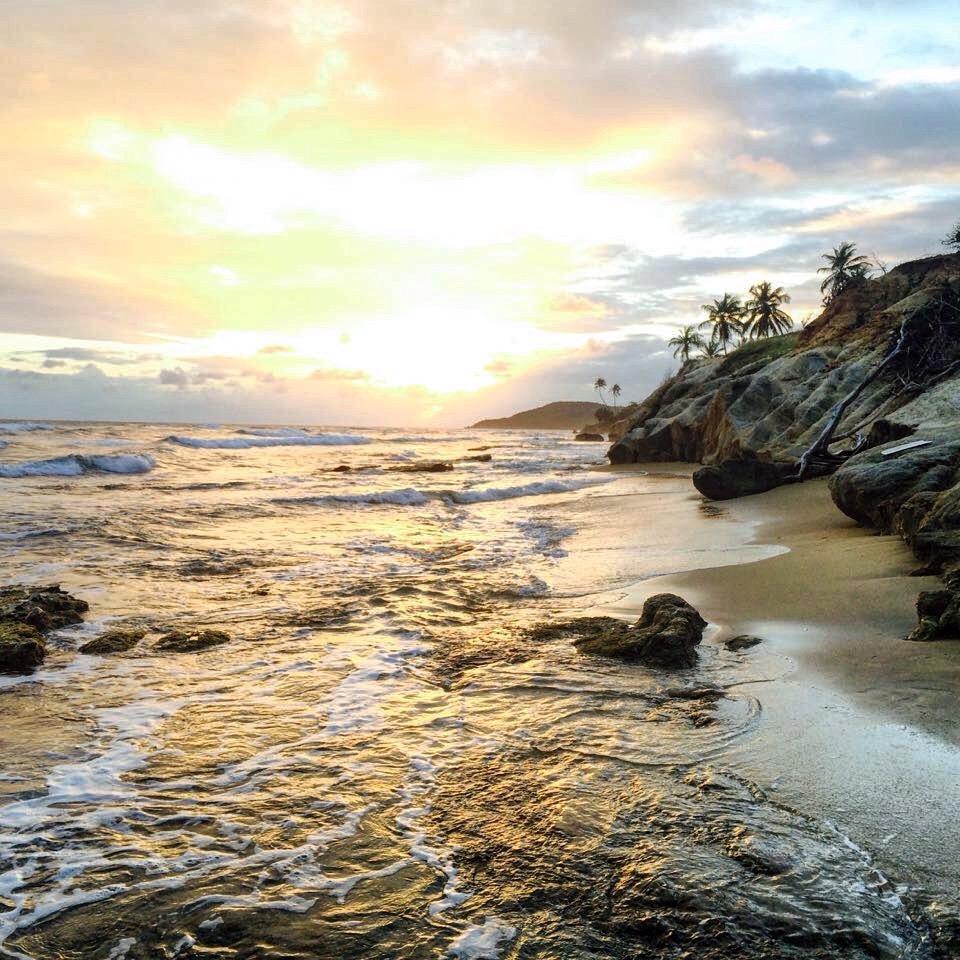
Kamari Beach, Santorini, Greece
The Greek islands offer visitors an assortment of beaches from brilliant snow white to deep charcoal and even red. On the island of Santorini, most visitors love the famous black strand of Kamari Beach on the island’s southeast coast. It’s one of the longest stretches of sand on the island and is backed by the town of its namesake, a popular resort area with eateries, bars, shops, and beach clubs where booking a couple of chairs and umbrellas is in order. Kamari’s most striking feature is Mesa Vouno Mountain, a looming volcanic rock that rises dramatically from the sea at one end of the beach. Formed by multiple subterranean explosions, Santorini is an active volcano, however, dormant.
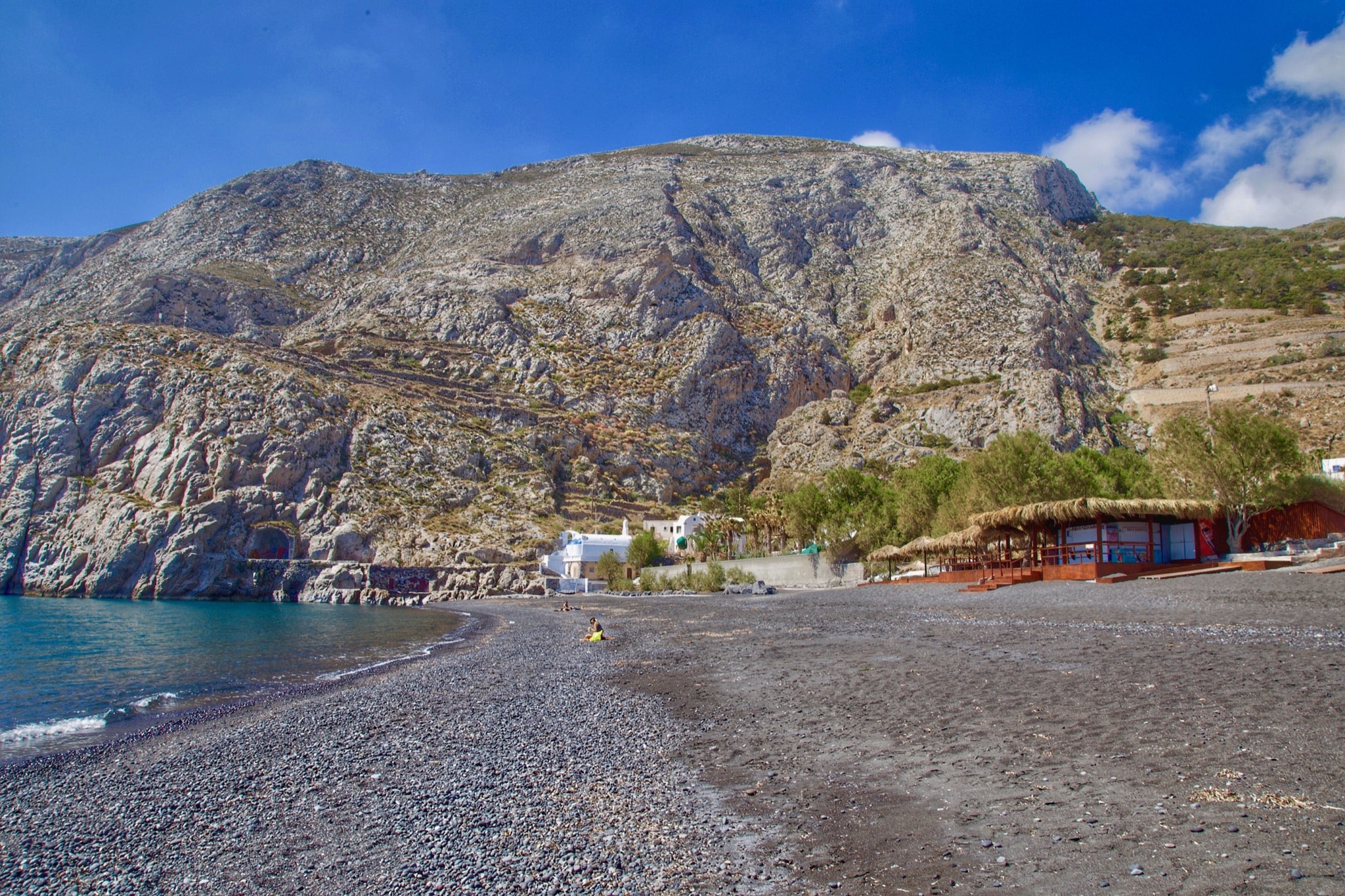
Anse Chastanet, St. Lucia
While St. Lucia has its gorgeous stretches of white sand, the darker hues on the southwest corner of the island promise endless opportunities. This beach sits beneath two resorts, Jade Mountain and Anse Chastanet. Unless you happen to be staying at either getting to the sand is an excursion via a rough road from Soufriere or by boat. Backed by palms the volcanic dark gray sand shimmers with flecks of minerals under the sun. In contrast, the crystal-clear turquoise water deepens in color as you enter the sea. Fronted by a marine reserve with natural reefs easily reached from shore, the snorkeling and diving offer amazing sightings of sea turtles, moray eels, parrotfish, angelfish, and trumpetfish. Onshore the vista of the towering mountains of the Pitons is your backdrop.
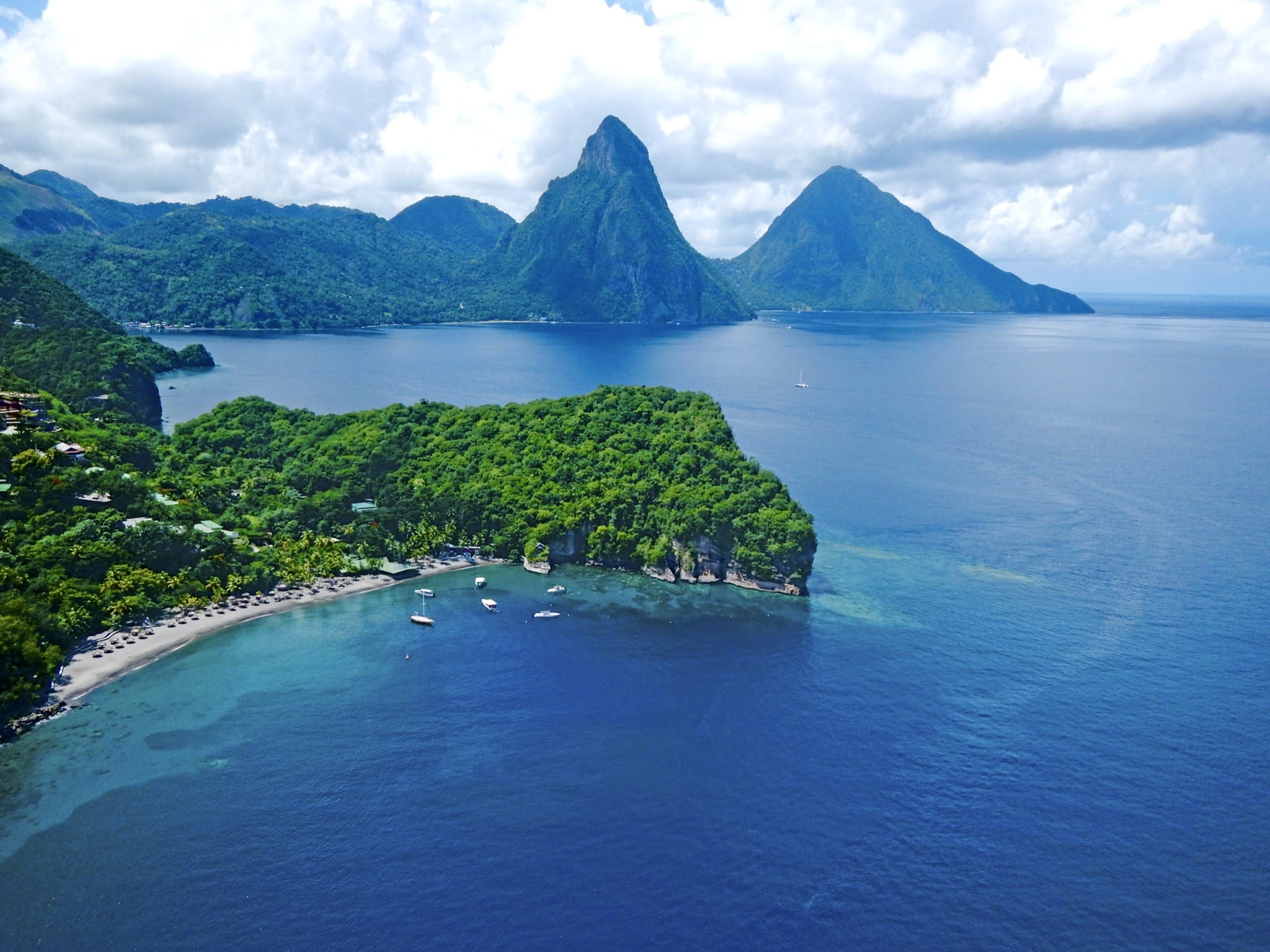
Playa Hermosa, Costa Rica
The big attraction here is to surfers and those seeking solitude and relaxation. These black sands in Puntarenas, lead to some of the biggest beach breaks along the Pacific Coast and attract surfers year-round. Dark chocolate-colored dunes are backed by lush green foliage and palms providing a gorgeous canvas to view while riding a wave or lazing along the coast. Swimming is reserved for those with boards as the waters tend to be rough, so much so that the area hosts the Quicksilver International Surfing Championship every August. A low-key tourist area, catering to surfers you’ll find an assortment of surf shops offering lessons and rentals.
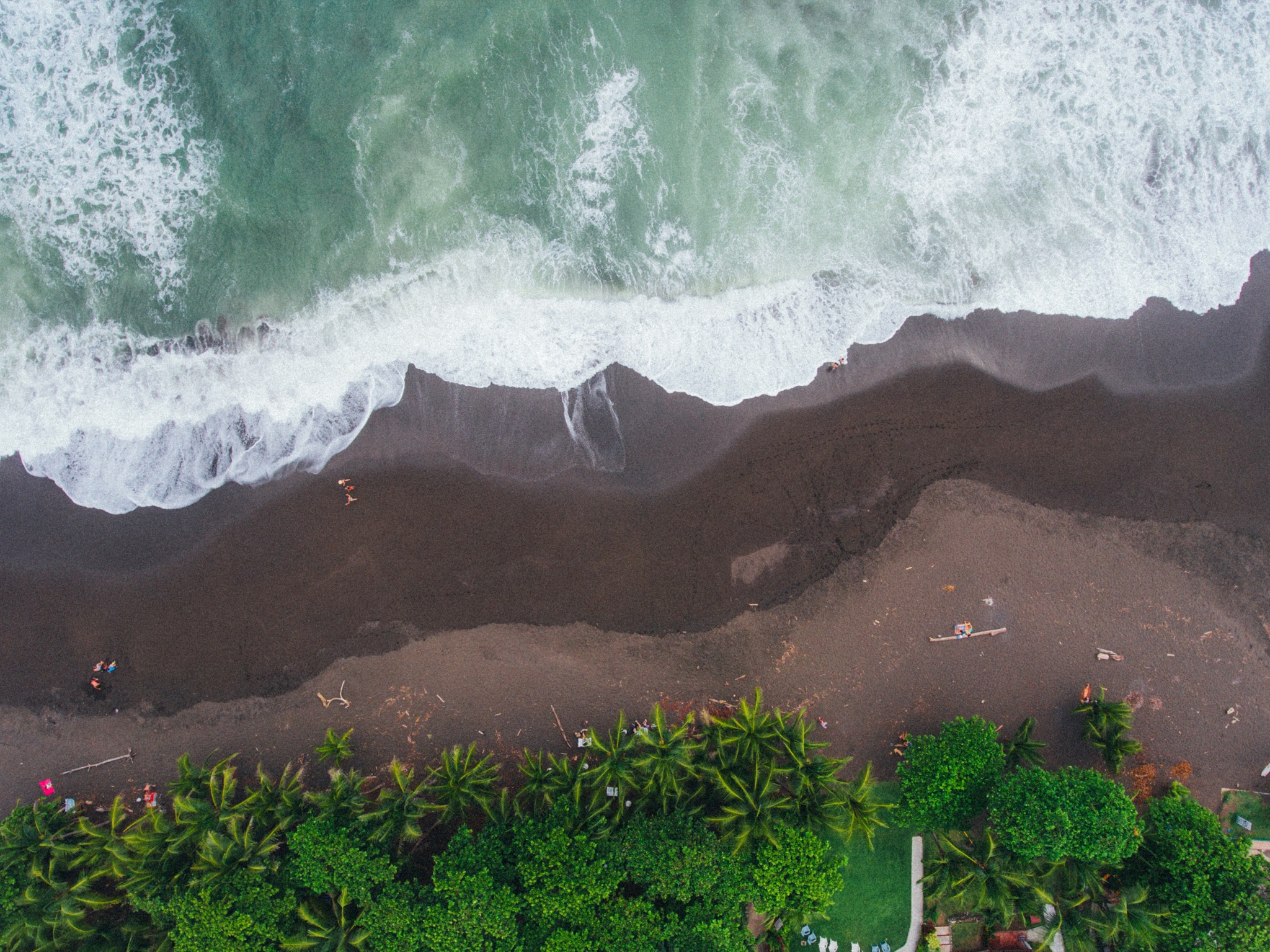
Punaluu Beach, The Big Island, Hawaii
The most well-known example of black dunes in the Hawaiian chain is on the Big Island. Created of basalt as lava flowed into the ocean, the jet-black sand at Punaluu Beach is backed by coconut palms. It’s not unusual to see large turtles basking in the sun warming up in the black sand. Both green sea turtles and Hawksbills find the area pleasing and don’t seem to mind sharing the sands with humans. They can be ideal for swimming when conditions are calm, or taking a coastal hike, turtle watching, and snorkeling nearby at Ninole Cove. Water temperatures range from warm to cool due to the freshwater spring that flows into the bay.
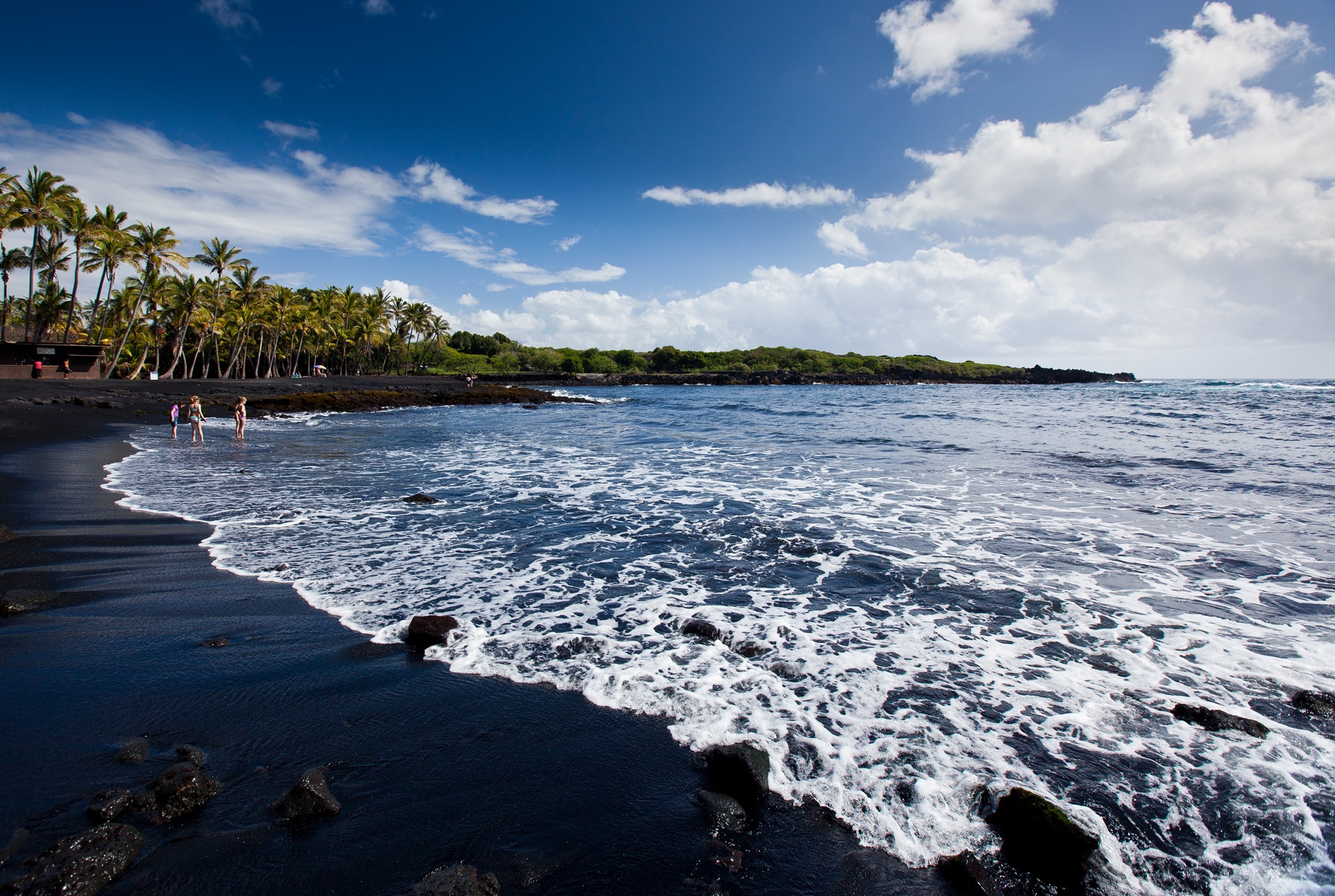
Famara Beach, Lanzarote, Canary Islands, Spain
According to some, this is the best beach on Lanzarote. Originally a fishing village, today’s visitors come to surf and kiteboard thanks to the predominant trade winds. Famara sits on the northwest of the island of Lanzarote within the Natural Park of the Chinijo Archipelago. This wild open beach is framed by the cliffs of Risco de Famara adding a dramatic vista as a backdrop. Here, the sand is not as black as most but a golden brown created by a mixture of volcanic material which adds ash-colored streaks and blotches. Ocean currents keep swimmers close to shore; however, a walk and a splash along the shoreline make for a perfect day at the beach. Backed by and sheltered by dramatic mountain cliffs, the natural beauty is striking.
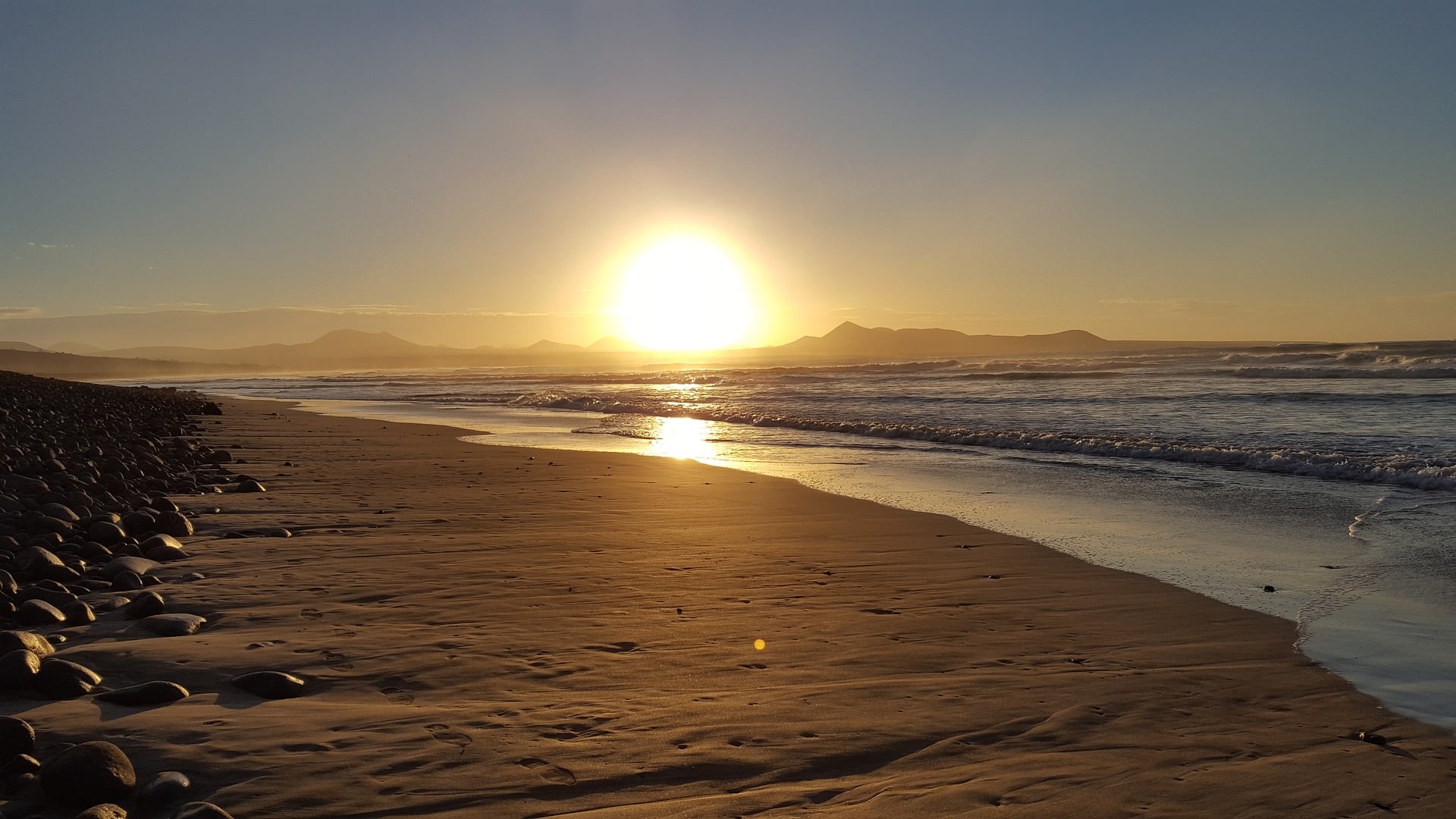
Sandy Bay, St. Vincent
In the southern Caribbean lie St. Vincent & The Grenadines, where the collection of islands is off the beaten path for most. Many of the Grenadines are composed of limestone and coral and are rimmed in white sandy beaches. While most beaches on the island of St. Vincent are of volcanic origin, there are both black sand and white sand beaches, the latter on the southern shores. But on the northern windward side in a rural area of St. Vincent, there is a beautiful wild spot at Sandy Bay. These secluded black sands, rough seas, and onshore breezes make this a natural adventure just to watch. Swimming is out of the question even for the most daring.
